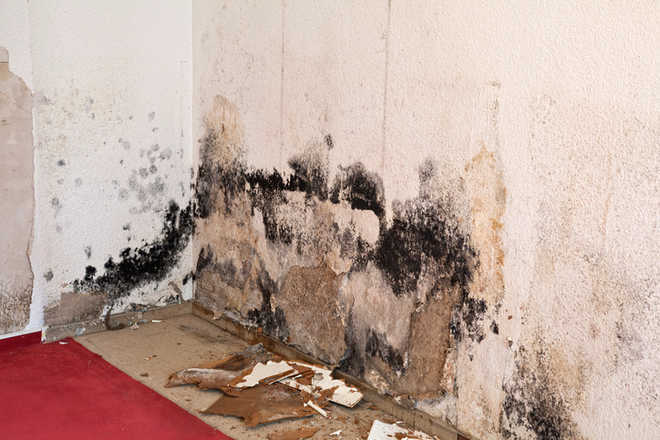
For representation only. iStock photo
Berlin
Scientists have found how a common fungus—found virtually everywhere on Earth—can knock out our body's defence system, enabling a potentially fatal infection to develop.
The fungus Aspergillus fumigatus can be found as a dark grey, wrinkled cushion on damp walls or in microscopically small spores that blow through the air and cling to wallpaper, mattresses and floors, researchers said.
Healthy people usually have no problem if spores find their way into their body, as their immune defence system will put the spores out of action.
However, the fungus can threaten the lives of people with a compromised immune system, such as AIDS patients or people who are immunosuppressed following an organ transplantation.
A team led by Oliver Werz of Friedrich Schiller University in Germany, has now discovered how the fungus knocks out the immune defences.
Among other factors, it is gliotoxin—a potent mycotoxin—that is responsible for the pathogenicity of Aspergillus fumigatus, according to a study published in the journal Cell Chemical Biology.
"It was known that this substance has an immunosuppressive effect, which means that it weakens the activity of cells of the immune defence system," said Werz.
However, it had not been clear previously how exactly this happens.
Researchers brought immune cells into contact with synthetically produced gliotoxin. These cells, called neutrophilic granulocytes, represent the first line of the immune defence system.
As soon as such a cell comes into contact with a pathogen, for example a fungus, it releases specific messenger substances into the blood, which attract other immune cells.
Once a sufficiently large number of immune cells has gathered, they can render the intruder harmless, researchers said.
This does not happen if the pathogen Aspergillus fumigatus is involved, researchers said.
The team found that gliotoxin ensures that production of the messenger substance leukotrieneB4 in the neutrophilic granulocytes is inhibited, so that they are unable to send a signal to other immune cells.
This is caused by a specific enzyme (LTA4 hydrolase) being switched off by the mycotoxin.
"This interrupts communication between the immune cells and destroys the defence mechanism. As a result, it is easy for spores—in this case the fungus—that enter the organism to infiltrate tissues or organs," said Werz. PTI



























